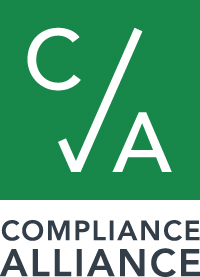|
Question:
If the Bank identifies a bookkeeping error or a posting error prior to a commercial customer notifying the Bank, does the Bank still need to fill out the Error Resolution form and/or follow the procedures set out in Reg. E for errors? We know that we need to correct the error, of course. Answer: Technically the bank does not need to comply with the procedures set forth in section 1005.11 of Reg. E. This is for multiple reasons, though. The first and foremost reason being that the scope of Reg. E coverage is limited to consumer accounts, as the definition of “account” is narrowed to include only consumer-type accounts. Thus, when a bank encounters an error in respect to a commercial customer, the bank is not bound by Reg. E. The second reason being that errors discovered by the Bank, itself, are expressly carved out of the error resolution procedures of Reg. E. So, even if the error was in regards to a consumer account, for section 1005.11 procedures to kick in, the customer would need to notify the Bank of the error. (b)(1) “Account” means a demand deposit (checking), savings, or other consumer asset account (other than an occasional or incidental credit balance in a credit plan) held directly or indirectly by a financial institution and established primarily for personal, family, or household purposes. 12 CFR § 1005.2(b)(1): https://www.consumerfinance.gov/policy-compliance/rulemaking/regulations/1005/2/#b 5. Discovery of error by institution. The error resolution procedures of this section apply when a notice of error is received from the consumer, and not when the financial institution itself discovers and corrects an error. 12 CFR § 1005.11(b)(1)-5: https://www.consumerfinance.gov/policy-compliance/rulemaking/regulations/1005/Interp-11/#11-b-1-Interp However; check your disclosures to ensure the bank has not given error resolution rights to commercial customers. If it is disclosed, we must follow our contract with the customer. Question:
Would the bank be violating Reg. O if it offered a higher Money Market rate for just shareholders? Answer: There is not a direct prohibition in Reg. O, since it primarily governs credit and not deposit accounts, like money market accounts. However, many banks have it in their internal policy to not give preferential interest rates to shareholders on deposit accounts either, to follow the spirit and intent of Reg O. Also, remember preferential treatment will oftentimes bring extra scrutiny. Question:
I have a loan officer who issued a loan estimate that predates the application date by 1 day. While I don’t believe this to be best practice, I’m not certain whether it’s also a violation of regulation. Can someone please confirm? Answer: Assuming the required six pieces of information had not been received, then at least conservatively, yes, this could be considered a violation. The timeline to provide an LE starts running from the time the application is received, which is based on when the bank received the sixth piece of required information. So an LE issued before the application wouldn't have followed the rules of being provided within 3 days after the application, and likely would not have included all of the required information. (iii) Timing. (A) The creditor shall deliver or place in the mail the disclosures required under paragraph (e)(1)(i) of this section not later than the third business day after the creditor receives the consumer's application, as defined in § 1026.2(a)(3). 1026.19(e)(1)(iii)(A), https://www.consumerfinance.gov/policy-compliance/rulemaking/regulations/1026/19/#e-1-iii |
Archives
March 2020
CategoriesCompliance Alliance offers a comprehensive suite of compliance management solutions.
To learn how to put them to work for your bank, call (888) 353-3933 or email info@compliancealliance.com. |


 RSS Feed
RSS Feed
